
Overview of the meeting. Photo: UN Tourism
Deputy Minister of Culture, Sports and Tourism Ho An Phong led the Vietnamese delegation to the program. Also attending were Deputy Director of the Vietnam National Administration of Tourism Phan Linh Chi, officers from the Department of International Cooperation (Ministry of Culture, Sports and Tourism), and officers from the Department of International Relations and Tourism Promotion (Vietnam National Administration of Tourism).
Artificial intelligence reshaping global tourism
Artificial intelligence (AI) is reshaping the global tourism industry, driving innovation across the entire value chain: from destination management and promotion to customer service and sustainability practices.
AI tools are helping to improve competitiveness and the traveler experience, while opening up new avenues for increased efficiency, resilience and inclusiveness in tourism. However, this technological transformation also poses significant challenges, including data ethics, governance frameworks and the digital divide between destinations and stakeholders. Governments have a key role to play in ensuring AI becomes a driver of sustainable growth and equitable opportunity in the tourism industry.
In that context, within the framework of the General Assembly, UN Tourism organized a thematic session “The impact of Artificial Intelligence and Innovation in shaping global tourism”, with the highlight being the High-level Policy Discussion session with the theme “Transforming the tourism industry through Artificial Intelligence”.
The discussion session aims to create a forum for more than 40 Ministers/Heads of Tourism Delegations and senior representatives of organizations, corporations, and businesses to share perspectives, views, experiences, and policy orientations related to AI application in the tourism sector; good practices in applying AI to transform the national tourism system... At the same time, it contributes to orienting global policies on responsible development and use of AI, for the sustainable development of the tourism industry.

UN Tourism Executive Director Natalia Bayona speaks
At the meeting, UN Tourism Executive Director Natalia Bayona emphasized that artificial intelligence plays a key role in innovation, education development and investment attraction, contributing to shaping the future of the global tourism industry. AI is profoundly changing the way people explore and experience tourism, from searching for information, booking services to interacting at destinations. Currently, about 70% of tourists in the world use AI in their travel journeys, through tools such as translation, directions, destination suggestions or spending management. Thanks to that, AI not only helps the tourism industry operate more effectively, but also brings more personalized and sustainable experiences to tourists.
The UN Tourism Executive Director introduced the organization's AI Agenda, based on three main pillars: (1) Innovation - organizing a global AI Startup Competition, attracting more than 400 startups from over 80 countries; (2) Education and digital skills development - launching online courses and academies on AI in the tourism sector; (3) Promoting technology investment - enhancing cooperation between countries and the private sector, especially in Saudi Arabia, Spain, Brazil and China.
At the end of her speech, Ms. Natalia Bayona affirmed that AI does not replace humans but makes humans stronger, and emphasized that UN Tourism's mission is to combine technological intelligence with human values, towards a smart, comprehensive and sustainable tourism industry.

Deputy Director of the Vietnam National Administration of Tourism Phan Linh Chi shares Vietnam's experience in applying AI technology and innovation in shaping tourism
Vietnam proactively approaches and applies 4.0 technology in tourism
Speaking at the Session, Deputy Director of the Vietnam National Administration of Tourism Phan Linh Chi expressed her honor to participate in this meaningful discussion session in the context of AI and innovation becoming strong driving forces reshaping the global tourism industry.
In Vietnam's development vision, AI and innovation are not only technological tools but also strategic levers to enhance competitiveness and build a national tourism brand. In recent times, Vietnam has implemented the National Digital Transformation Strategy, the Project on applying technology of the Industrial Revolution 4.0 in developing smart tourism, the Program to promote smart tourism development and build a National Tourism Database System. These policies promote the application of AI, big data and the Internet of Things in destination management, marketing and tourist services. Vietnam has also issued many policies to encourage businesses to invest in smart tourism, especially large technology enterprises, corporations, and innovative startups.
Deputy Director Phan Linh Chi said that in the coming time, Vietnam will continue to strengthen connectivity and synchronize tourism data; propose incentive mechanisms and policies; encourage training of tourism human resources capable of applying and managing AI; and issue guidelines on the safe and responsible use of AI.
Vietnam commits to working closely with UN Tourism and member countries to build a smarter, more humane and creative tourism ecosystem for the sustainable future of global tourism.

Mr. Apostolos Tzitzikostas - European Commissioner for Sustainable Transport and Tourism
AI applications need to go hand in hand with data security, respect for privacy and ethical standards
Mr. Apostolos Tzitzikostas - European Commissioner for Sustainable Transport and Tourism emphasized that artificial intelligence has opened a new era for European tourism, where major barriers are gradually disappearing and technology is used to improve humanity, sustainability and accessibility for everyone. According to him, Europe is at the forefront of applying AI to develop sustainable tourism with smart systems that help preserve heritage, optimize energy use and manage visitor flows. From Rome to Madrid and many other major cities, AI is deployed to support tourists, including people with disabilities, contributing to building smarter and more inclusive destinations. The European Union is now the first region in the world to issue a legal framework on trustworthy AI, setting out principles to protect human rights, safety and core values of European society.
Considering that AI is gradually becoming a strategic pillar in sustainable tourism development and global innovation, Mr. Mohammed Al Ahbabi - Minister of Economy and Tourism of the United Arab Emirates (UAE) said that AI is not just a technology, but a tool to promote education, healthcare, tourism and the creative economy, contributing to improving the tourist experience and the effectiveness of destination management. The UAE has implemented the National Strategy on AI, established the National Artificial Intelligence Authority and cooperated closely with the private sector, research institutes and global technology corporations to develop AI solutions in smart tourism, sustainable management, environmental monitoring and optimizing tourist services. In addition, the UAE invests heavily in human resource training and digital capacity building, aiming to promote comprehensive digital transformation, knowledge sharing and international cooperation to create a smart, sustainable and comprehensive tourism ecosystem.

Ms. Sherif Fathy Attia - Minister of Tourism and Antiquities of Egypt
According to Ms. Sherif Fathy Attia - Minister of Tourism and Antiquities of Egypt, the application of artificial intelligence plays an increasingly important role in improving efficiency, sustainability and personalized experiences in tourism. She said that AI is applied at every stage of the journey such as smart booking, preference prediction, multilingual virtual assistants, data analysis tools to help forecast passenger volume, optimize transportation and energy as well as manage destinations more effectively. However, for AI to truly bring sustainable benefits, it requires strict governance, data security, respect for privacy and ethical standards, and ensuring that small businesses and emerging destinations are not left behind.
Mr. Camilo Pérez Alvarado - Vice Minister of Tourism of Colombia said that the country is implementing Tourism Strategy 4.0 to promote digital transformation and sustainable tourism development. Notable initiatives include the Observatory for Innovation and Digital Transformation in Tourism, and an AI-based travel assistant that can use 80 languages to support and enhance the tourist experience. Colombia is also promoting cooperation with the private sector and international organizations, training digital and AI skills, and supporting localities to narrow the digital divide. He emphasized the goal of developing AI that is ethical, inclusive and human-centered, towards a smart and sustainable tourism industry.
On the same day, the 4th Plenary Session also took place, discussing the adoption of the Riyadh Declaration on the Future of Tourism, and holding the UN Tourism AI Competition Awards Ceremony.
The 26th UN Tourism General Assembly in Saudi Arabia was attended by about 1,400 delegates from 148 countries, including about 90 Ministers, 17 Deputy Ministers and 70 Ambassadors of the countries.
The General Assembly decided on the location and theme of World Tourism Day for the next two years: 2026 in El Salvador with the theme “Digital Agenda and Artificial Intelligence in Reshaping Tourism”; 2027 in Cabo Verde with the theme “Transforming Tourism through Education”.
The 27th UN Tourism General Assembly will be held in the Dominican Republic in 2027.

Deputy Director of Vietnam National Administration of Tourism Phan Linh Chi interviewed by Breaking Travel News
Vietnam National Administration of Tourism
Source: https://bvhttdl.gov.vn/tri-tue-nhan-tao-dang-tai-dinh-hinh-du-lich-toan-cau-20251111085847732.htm













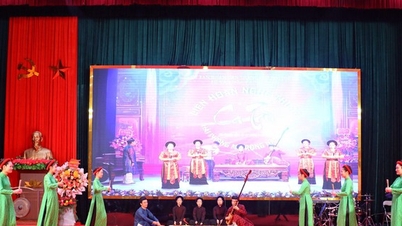










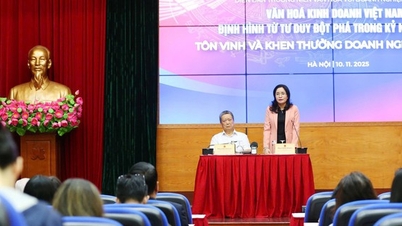




































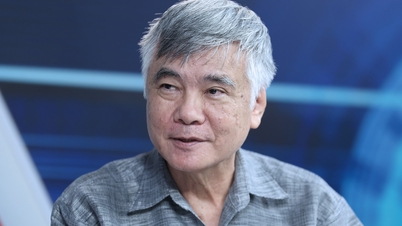













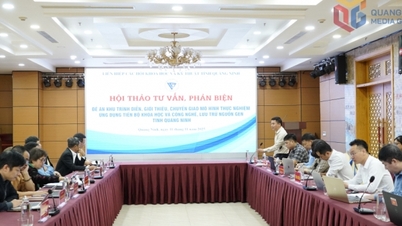







![Dong Nai OCOP transformation: [Article 4] Reaching national standard products](https://vphoto.vietnam.vn/thumb/402x226/vietnam/resource/IMAGE/2025/11/11/1762825820379_4702-cac-san-pham-trai-cay-chung-nhan-ocop-nongnghiep-174649.jpeg)



![Dong Nai OCOP transition: [Article 3] Linking tourism with OCOP product consumption](https://vphoto.vietnam.vn/thumb/402x226/vietnam/resource/IMAGE/2025/11/10/1762739199309_1324-2740-7_n-162543_981.jpeg)


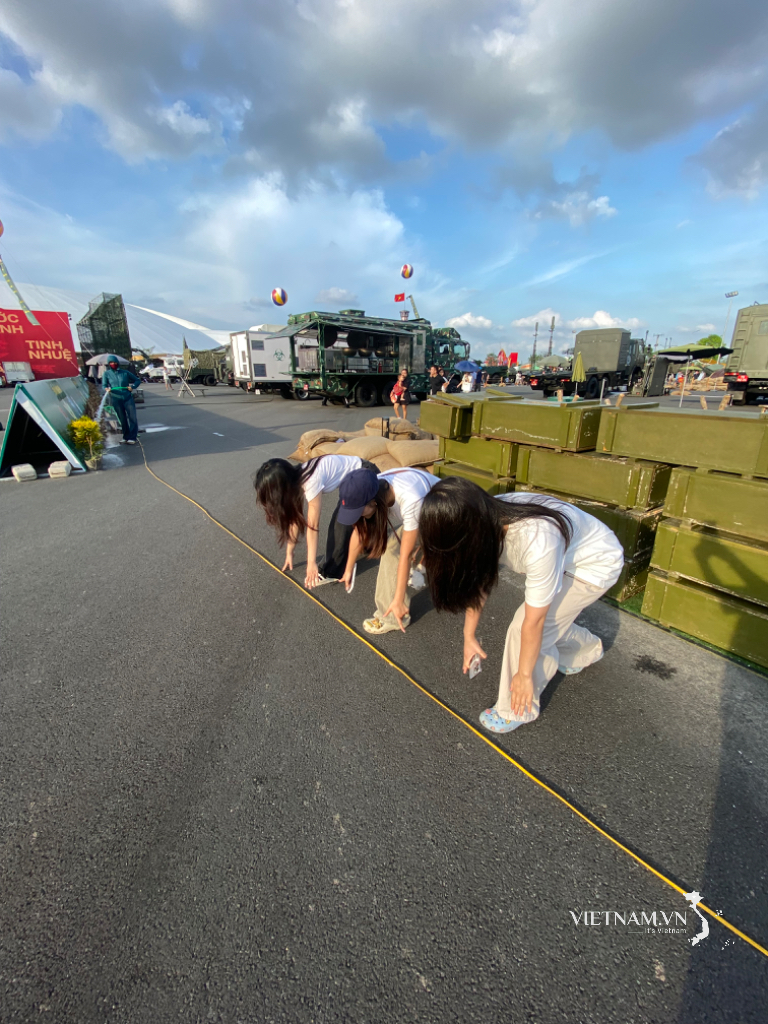


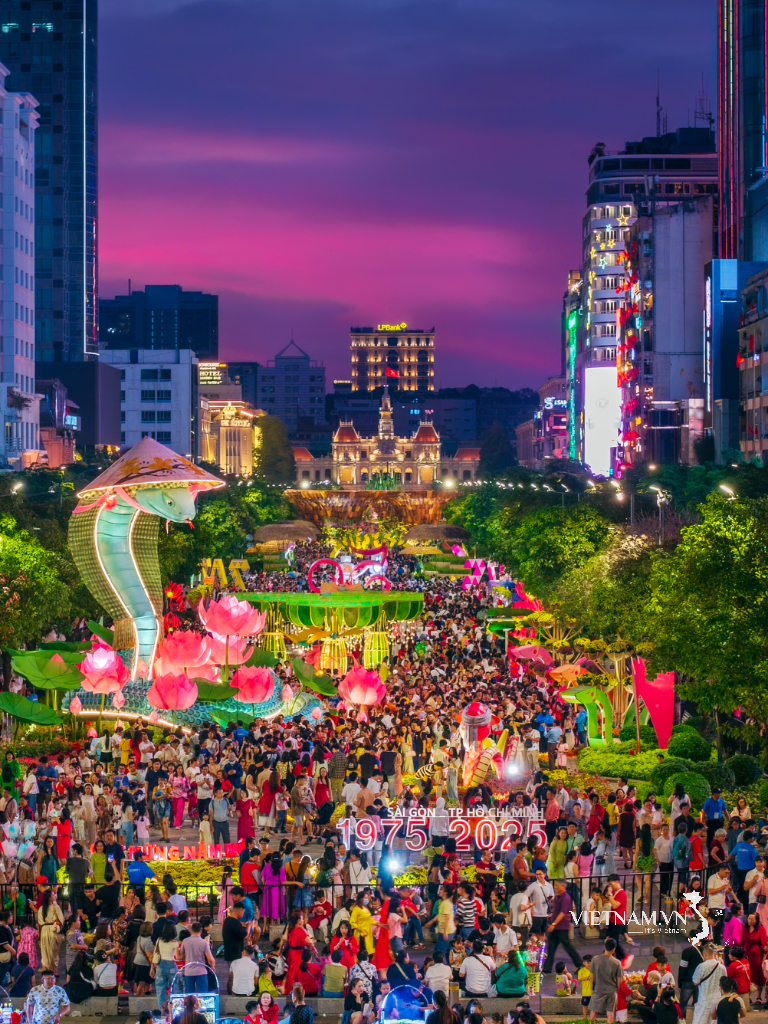
Comment (0)